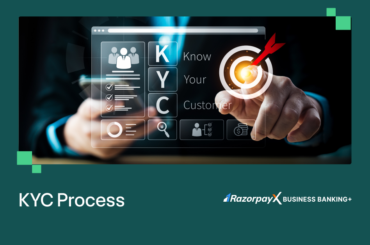When it comes to running a business, it’s not just about how much money comes in – it’s equally about how efficiently it goes out. That outflow of money? That’s where payouts come in – and understanding the payouts meaning in the business context is crucial to maintaining financial efficiency. Whether you’re disbursing salaries, issuing customer refunds, paying suppliers, or rewarding shareholders, payouts form the beating heart of your financial operations.
Back in the day, managing payouts meant wrestling with paper cheques, ledger entries, and clunky spreadsheets. But not anymore. With modern solutions like RazorpayX Payouts, businesses can automate, track, and manage every rupee that goes out – with precision and speed.
Let’s start at the beginning – what exactly are payouts?
What are Payouts?
A payout is an outflow of cash in a business. To get a clearer view of payouts meaning in this context, consider any instance where money moves out to employees, vendors, or customers. A business payout can take many forms, depending on the nature of the transaction and the entities involved, such as direct bank transfers, digital wallets or checks. Some payouts include salary or wage disbursals to employees, refunds to customers, dividends to shareholders, etc.
Poorly managed payouts can lead to suspicious cash flows, strained relationships, and even legal issues. Traditionally, payouts were made manually in the form of cheques or cash transfers, with bulky paper-based processing or complex spreadsheets.
Today, payout service providers like RazorpayX Business Banking+ allow businesses to make and manage payouts to any stakeholder in seconds. Solutions like API payouts, bulk payouts, and automated payouts have changed the way businesses handle payouts.
What is Payout Ratio?
The payout ratio is a simple but powerful metric that shows what portion of your profits is being paid out to shareholders as dividends. In other words, it’s a peek into how your company splits its earnings – between giving back to investors and reinvesting into the business.
Payout Ratio = (Dividends / Net Income) × 100
A high payout ratio? That often means your company is in a stable, mature phase – perfect if you’re aiming to attract dividend-hungry investors.
A low payout ratio? That typically signals growth-mode – you’re reinvesting earnings to scale faster.
Whichever camp your business falls into, understanding your payout ratio helps you make smarter decisions – on cash flow, investor relations, and long-term strategy.
Types of Payouts
-
Domestic/Local Payouts
A local payout is made within the country or region from which the payment originates. It is made using local payment processors or banks. Local payouts are almost instant and involve lower transaction fees and better success rates. This method is commonly used for wage and stipend payments or small petty cash expenses.
For international, recurring or big-ticket payouts, businesses generally use other forms like payouts like API, bulk or recurring payouts.
-
Vendor Payouts
Vendor payouts are payments made to suppliers for goods or services rendered. These payouts are the lifeblood of the supply chain, ensuring that the business has the necessary resources to operate efficiently. In industries with complex supply chains, such as manufacturing or retail, timely vendor payouts are critical.
Delays in payments can disrupt the supply chain, lead to stock shortages, and damage relationships with key suppliers.
Modern businesses can benefit significantly from automating vendor payouts through accounts payable software that integrates with their Enterprise Resource Planning (ERP) systems. This ensures that payments are made on time, invoices are matched accurately, and any discrepancies are flagged for review, thereby reducing the risk of errors and fraud.
-
Employee Payouts
Employee payouts encompass salaries, bonuses, leave encashment, full and final settlements, and other forms of compensation. For business leaders, ensuring that employee payouts are handled efficiently is crucial for maintaining morale, productivity, and compliance with labour laws. A delay or mistake in payroll can lead to dissatisfaction, reduced engagement, and even legal repercussions.
Advanced payroll systems now offer features like automated tax calculations, benefits administration, and direct deposit, which simplify the payroll process and ensure accuracy. Additionally, many organizations are now adopting flexible pay schedules and on-demand pay options, where employees can access their earned wages before the traditional payday.
This trend is growing, especially in industries with hourly workers, as it helps reduce financial stress and improves employee retention.
-
Customer Payouts
Customer payouts refer to refunds or other forms of financial compensation provided to customers. These payouts are essential for maintaining customer satisfaction and loyalty, particularly in industries like e-commerce and retail. A seamless refund process can be a key differentiator in a competitive market.
A good use case of payouts in e-commerce businesses is cash-on-delivery refunds. Most customers prefer CoD when purchasing online since it offers security, trust and ease of purchase for the user. About 30% of all online purchases are cash on delivery; this creates a new problem: refunding cash on delivery purchases.
With payout solutions like RazorpayX Payouts, businesses can now automate the process of crediting the refund amount back into customer bank accounts, even without bank account details. Here’s how!
-
Shareholder Payouts
Shareholder payouts involve payments made to business partners, affiliates, or collaborators based on agreed-upon terms, such as revenue-sharing agreements, royalties, or commission payments.
These payouts may include equity payouts like dividends or profit-sharing. Stock buybacks also make up an important part of equity payouts, where a company repurchases its own shares from shareholders to increase shareholder value.
Equity payouts are used to calculate important metrics like the profitability of the business with ratios like payout ratio.
-
Insurance Payouts
Insurance payouts include the compensation given by insurance companies to policyholders who have faced losses or damages covered by their insurance policy. There are several types of insurance payouts – health insurance, life insurance, home insurance, fire insurance, vehicle insurance and others.
The payout is made based on the terms and factors stated in the policy, and can be made to the actual policyholder or to the beneficiaries listed.
-
Crypto Payouts
Cryptocurrency is an emerging mode of making payments online. It involves transferring digital currency like Bitcoin and Ethereum into the recipient’s digital wallet. Crypto payouts offer benefits like fast processing, security and privacy and lower transaction fees.
However, it’s important to remember that cryptocurrency is still very nascent and might not be accepted by most people or businesses.
Traditional Payouts vs. Payout Software
Businesses that rely on manual processes for managing payouts through checks, bank transfers and wire transfers face significant challenges. Here are a few:
Challenges with Traditional Payouts
- Time-Consuming: Manual processes require significant time and effort, from generating checks to reconciling accounts.
- High Risk of Errors: Human error is a common issue in manual payout processes, leading to discrepancies that can be costly to rectify.
- Inefficient Cash Flow Management: Processing delays can affect cash flow, especially in businesses operating on tight margins.
- Lack of Transparency: Traditional methods often lack real-time tracking, making it difficult to monitor the status of payments and resolve issues promptly.
Features of Modern Payout Software
With modern tech solutions like RazorpayX Business Banking+, businesses no longer need to deal with the drawbacks of making payouts traditionally. Here are the benefits of automated payout software.
- Scalability: As businesses grow, payout software can scale to handle increased transaction volumes without the need for additional administrative resources.
- Enhanced Security: Advanced encryption and fraud detection algorithms protect against unauthorized transactions and data breaches.
- Cost Savings: By automating payouts, businesses can reduce the administrative costs associated with manual processing and minimize errors that could lead to financial losses.
- Improved Cash Flow Management: Automated systems allow for better forecasting and management of cash flow, as payouts can be scheduled and tracked with precision.
Process of Making a Payout
The process of making a payout can vary significantly depending on the industry and the specific needs of the business. Here’s how payouts are typically handled in various sectors:
Payouts in E-commerce
For e-commerce business leaders, managing payouts efficiently is crucial for maintaining strong relationships with suppliers and ensuring customer satisfaction. Vendor payouts are often automated through marketplace platforms, which calculate earnings based on sales and manage disbursements on a scheduled basis.
For customer payouts, such as refunds, e-commerce businesses often rely on integrated payment gateways that can process refunds quickly and handle various payment methods, including credit cards, PayPal, and digital wallets. Offering fast and hassle-free refunds can be a significant competitive advantage, especially in markets where customer trust is paramount.
Payouts in IT & IT Services
For IT and IT services companies, payouts primarily involve employee compensation, vendor payments, and partner commissions. The dynamic nature of these industries, with their project-based work and global teams, requires flexible and scalable payout solutions. Payroll systems that can handle multiple currencies and compliance with international labour laws are essential for businesses with global operations.
Vendor and partner payments in the IT sector often involve large sums and complex contracts, making automation crucial. By integrating payout software with project management and procurement systems, IT companies can ensure that payments are made according to milestones, reducing the risk of disputes and ensuring that all parties are aligned on financial terms.
Payouts in Edtech
Edtech companies manage a variety of payouts, including those to content creators, instructors, and affiliate partners. As the industry continues to expand globally, managing these payouts efficiently is becoming increasingly complex.
For business leaders in Edtech, adopting payout software that integrates with Learning Management Systems (LMS) and CRM tools can streamline the process. This integration allows for automatic calculation of royalties, commissions, and instructor fees based on usage data, course sales, or other performance metrics.
Additionally, offering flexible payment options, such as cryptocurrency payouts or international bank transfers, can attract top talent and partners from around the world.
Payouts in Gaming
The gaming industry is characterized by a complex web of payouts, including those to developers, content creators, and tournament winners. Gaming platforms often need to handle microtransactions, digital currencies, and cross-border payments, all while ensuring compliance with varying regulations.
For gaming companies, using payout software that supports a wide range of payment methods and currencies is essential. Additionally, blockchain technology is gaining traction in the gaming industry, offering transparent and secure payout processes, particularly in decentralized gaming ecosystems where trust and transparency are paramount.
Payouts in Hospitality
In the hospitality sector, payouts are directed toward employees, suppliers, and partners. Employee payouts may include wages, tips, and bonuses, which need to be managed efficiently to ensure staff satisfaction and compliance with labor laws. In a sector known for high employee turnover, offering timely and accurate payouts can significantly impact retention.
Supplier payouts in hospitality cover the cost of goods and services, often involving large volumes and tight margins. Automating these payouts through accounts payable systems that integrate with procurement platforms can help manage cash flow more effectively and reduce the risk of payment delays, which could disrupt operations.
Conclusion
Business payouts are a critical component of financial management, affecting everything from vendor relationships to employee satisfaction and customer loyalty. For business leaders, mastering the payout process is essential for maintaining operational efficiency, ensuring compliance, and fostering long-term growth.
By understanding the different types of payouts and leveraging modern payout software, businesses can streamline their processes, reduce errors, and ensure that all stakeholders are compensated promptly and fairly.
As industries continue to evolve, adopting efficient payout systems will be key to staying competitive and agile.
Whether you are leading a startup or managing a multinational corporation, a strategic approach to payouts can provide a significant advantage, driving both financial success and stronger relationships across the board.
FAQs
What does a payout mean?
A payout refers to the distribution of funds from a business to another party, such as a vendor, employee, customer, or partner. It is the process of fulfilling financial obligations through payment. For business leaders, managing payouts efficiently is crucial for maintaining healthy cash flow, ensuring stakeholder satisfaction, and minimizing legal risks.
What is a payout bank account?
A payout bank account is a designated account used by businesses to manage outgoing payments. This account is typically separate from the main business account to streamline the process of tracking and reconciling payouts. For business leaders, maintaining a dedicated payout account can improve cash flow visibility and simplify financial management.
What is the difference between payout and payment?
While both terms involve the transfer of money, “payout” specifically refers to the distribution of funds as part of a larger financial obligation, often involving multiple transactions over time. For instance, payroll payouts are a recurring obligation, whereas a payment might refer to a one-time transaction for goods or services. Understanding this distinction is important for business leaders as it impacts how financial processes are structured and managed.
What are weekly payouts?
Payouts can be recurring, made at regular intervals to employees, vendors or others. Weekly payouts are those which are made on a weekly basis.
What are direct payouts?
Direct payouts are payouts that are directly transferred into the recipient’s account without any intermediary.
How long does a payout take to process?
Depending on the platform, amount or mode of transfer, payouts can take anywhere between less than a second to a few days. With RazorpayX Business Banking+, businesses can make up to 50,000 payouts in a few seconds.





